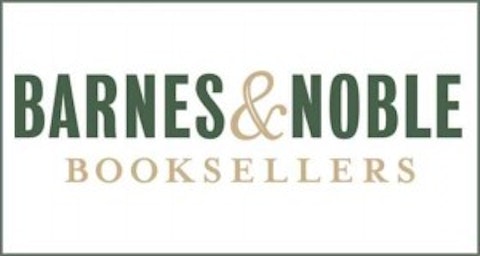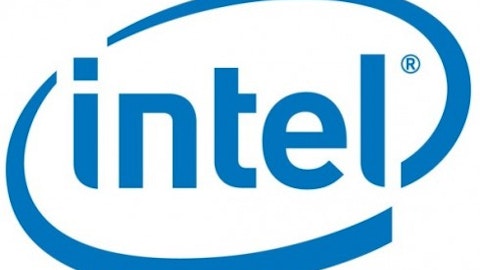
Yet, somehow, it may not be the lack of technology keeping the firm back. In fact, books may be what ultimately saves the company.
The company’s tech salvation isn’t happening
On July 9, Barnes & Noble, Inc. (NYSE:BKS)’s CEO William Lynch resigned, as the company looked for ways to alleviate the recent sales losses from its retail outlets and Nook line.
In a rather odd way, the Nook, despite being considered Barnes & Noble, Inc. (NYSE:BKS)’s way of staying competitive in an increasingly technological world, was actually the biggest source of losses for the company over the last year. Last quarter, Nook sales dropped 34% year-over-year, with EBITDA on the Nook falling $177 million, compared to only a $77 million drop a year before. By comparison, sales for the iPad were up 66%, and Samsung’s tablets rose by 282.6%.
Yet the retail portion of B&N’s sales, thought to be the more vulnerable aspect of the business, was only down 10%, with college bookstore sales up 10.7%, not bad when your demographic tends to be plugged into whatever the newest gadget is vs. the newest hit literary release. Yet these numbers stand in contrast to the expectations that the Nook would help Barnes & Noble, Inc. (NYSE:BKS) stay competitive. Why?
Tablet saturation means less Nook profit
It turns out that the Nook was more popular when it was just directly competing with Amazon.com, Inc. (NASDAQ:AMZN)’s Kindle. When the Kindle was still without a touchscreen until the Kindle Touch, and now the Fire, came out, the Nook already had it. In addition, buying a Nook provided access to the store’s ecosystem of books and other materials at a deep discount from the cover price. As a result, the Nook had some good years, and positive reviews.
However, competition from companies like Google, Microsoft, and Apple in the tablet market pushed the Kindle and the Nook aside, due to not being equipped for much beyond books and not having as built in a market as the three tech giants. Barnes & Noble, Inc. (NYSE:BKS) took it harder than Amazon.com, Inc. (NASDAQ:AMZN), as 66% of Amazon’s electronics revenue came from products other than the Kindle, while the Nook alone was supposed to be B&N’s link to the 21st century. When the Nook went down, the company did too.
How Barnes & Noble can be hip again
Yet Barnes & Noble has something Borders didn’t have: brand loyalty and good store environment. Borders was known for its warehouse inefficiency and lack of diversity in its products, whereas many B&N retailers are built like the kinds of places one could spend hours in, which means impulse buying. Since 1993, Starbucks has provided the chain with in-store cafes, adding the coffeehouse culture to the bookstore culture, and creating a solid revenue stream for Barnes & Noble, Inc. (NYSE:BKS). Also, being the main college bookseller, B&N has a captive audience of students who often need textbooks quicker than a site like Amazon.com, Inc. (NASDAQ:AMZN) can provide (though not necessarily cheaper). Therefore, there is still a market for a place like B&N because going to a bookstore is still popular enough to be profitable.
Can the Nook help Microsoft?
B&N isn’t in a good position right now, but thankfully for them, it is a fixable one. The bookstore culture is clearly still in demand, and is something that Amazon can’t duplicate at the moment. So for B&N, look to see more emphasis on retail sales going forward, as well as making stores more relaxing for patrons. This can be done in a cost-effective manner if, as planned, the company spins off the Nook. They should have no problem doing so because tablet computing is becoming increasingly popular, yet the demand is more for tablets made by tech companies like Microsoft rather than for bookstore-based tablets.
In 2012, Microsoft Corporation (NASDAQ:MSFT) bought a 17% stake in the Nook, valuing it as a $1.7 billion franchise. Since that point though, the Nook has lost a lot of value owing to only around $600 million in sales. Microsoft Corporation (NASDAQ:MSFT), meanwhile, has fallen behind competitors Google and Apple in the tablet market. It would seem like a match made in heaven if Microsoft is able to snatch up a controlling share of the Nook at a discount rate, which may be on the table given the desire to spin off the Nook. It would free up Barnes & Noble, Inc. (NYSE:BKS) to focus on its strengths, while putting the Nook in the hands of a company that can develop it for the purpose of becoming more competitive in the growing tablet industry.
What this means for your books
If Microsoft buys the Nook in full, expect to see some upward movement in Microsoft Corporation (NASDAQ:MSFT)’s share price, as well as with B&N, since it will be a sign to investors that the company is serious about trimming down and focusing on its core business of retail.
Barnes & Noble, Inc. (NYSE:BKS) has every potential of becoming a go-to hangout spot and social area again, the way bookstores should be. Sure, there will still be people predicting the end of the bookstore, but it appears as though as long as B&N doesn’t try to be the next Amazon, because it simply can’t be, it can stick around as not only a solid bookstore, but also as a place of refuge in the urban jungle. This is B&N’s strong suit, and for investors, this urban oasis may be a good place to invest.
The article How to Save Barnes & Noble originally appeared on Fool.com and is written by John McKenna.
John McKenna has no position in any stocks mentioned. The Motley Fool recommends Amazon.com. The Motley Fool owns shares of Amazon.com and Microsoft. John is a member of The Motley Fool Blog Network — entries represent the personal opinion of the blogger and are not formally edited.
Copyright © 1995 – 2013 The Motley Fool, LLC. All rights reserved. The Motley Fool has a disclosure policy.




